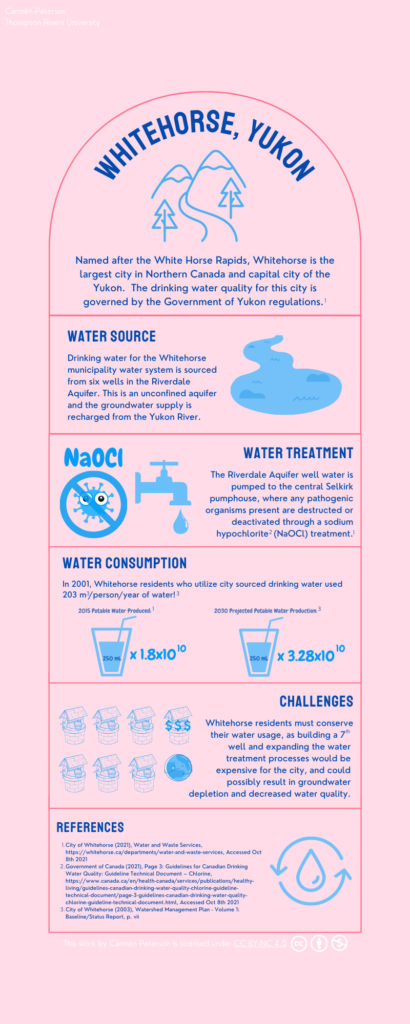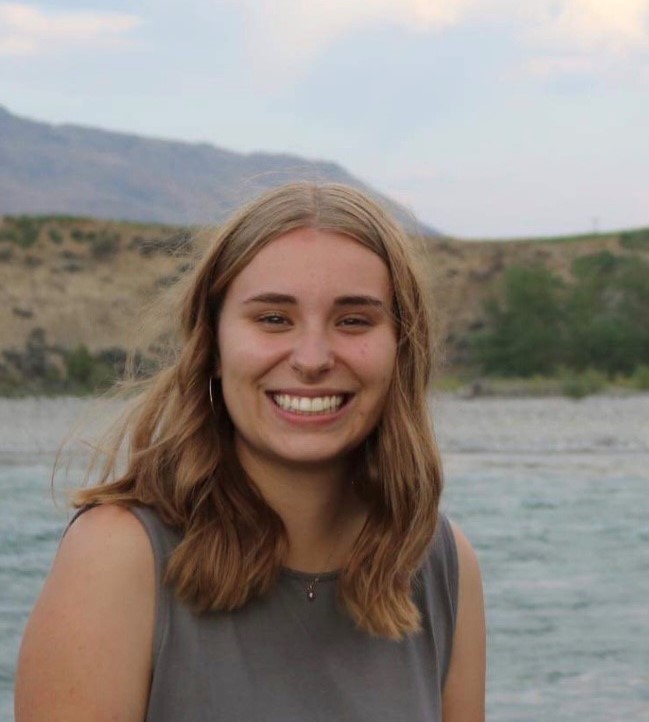CHEM 3010: Aqueous Environmental Chemistry
This course taught me about environmental toxicology and freshwater and drinking water quality, with a focus on climate change and environmentally sustainable practices. The information that I learned in this course shaped how I view water usage by highlighting the issues of pollution to and shortage of our drinking water sources. I learned about the scarcity of clean, safe drinking water and the complicated chemical and physical processes that are required to create it. I aim to improve our environment by using this knowledge to promote sustainable water usage. At the bottom of this page is an assignment that I did in this course, in which I learned about the challenges to drinking water availability in a community that is largely isolated from the rest of Canada.
CHEM 3020: Atmospheric Environmental Chemistry
During this course, I learned about topics such as greenhouse gas emissions and atmospheric chemistry reactions. Throughout the semester, the perspectives of climate change and Indigenous knowledge were included in what we learned. Two speakers from the Salish Fire Keepers Society spoke to our class about prescribed cultural burns. Prior to this presentation, I had been heavily exposed to prescribed burning as a forest fire fuel management treatment; however, I had never learned about this topic from the viewpoints of either Indigenous cultural practices or atmospheric chemistry. This presentation changed my perspective of sustainable practices in consideration to the chemical reactions that occur in our atmosphere. This knowledge is important because it is a side of environmental pollution and climate change that is so incredibly important, but yet is easy to ignore because it is not visible to us.
CHEM 3010 and 3020 are only offered every second year; this is because the Environmental Chemistry program at TRU does not have enough students to demand that these courses are offered yearly. In fact, I believe that there was only one other student in these courses who also required both of them to graduate. Despite this, these courses have been two of my favourite courses throughout my degree.
ECON 3740: Land Use Economics
During the third and fourth years of my degree, I aimed to complete a minor in Environmental Economics and Sustainable Development. At the time I was interested in economics, as someone who has always loved math and data analysis, and to pursue this minor I took Microeconomics and Land Use Economics. ECON 3740 taught me about topics such as the economics of soil conservation, efficiency and equity in land use planning, forest management, and multiple uses of public lands. These topics helped me to think about how our land is managed and how to ensure that ecosystem services are considered during land division decisions.
NRSC 3260: Limnology
This course taught me about freshwater hydrology, phytoplankton, zooplankton, and macroinvertebrates. Many of these topics were aspects of our environment that I had never considered before. I learned about viewing our waterbodies holistically, through the consideration the flow of water through both lakes and rivers and the connectivity of the organisms living within them. This technique is incredibly important for cumulative effects work and increased my appreciation for ecology.
NRSC 4110: Watershed Management
As someone aiming to work in the hydrology sector, this course was instrumental to my growth and knowledge. In this course I learned about the management of watersheds and riparian zones to promote healthy freshwater ecology and to decrease the impact to ecosystems downstream of disturbances. Through the implementation of buffer zones, consideration of soil compaction, and the emphasis on hydraulic connectivity, our watersheds can be properly managed to promote healthy ecosystems. As I aim to pursue a career in hydrology, this course taught me invaluable knowledge that I will apply to managing BC’s water resources in a sustainable manner.

